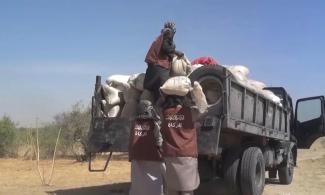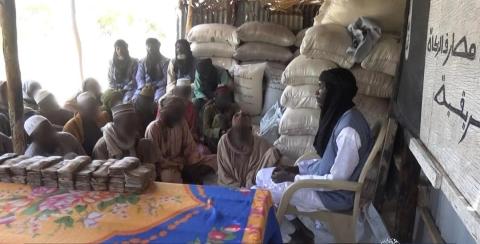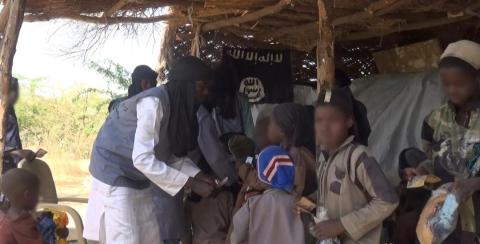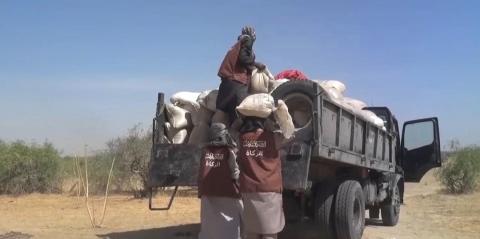
According to ISWAP, 353 bundles of clothes were also given to orphans and Muslim children during the fasting period.
The Islamic State-backed faction of Boko Haram, the Islamic State West Africa Province (ISWAP), formerly known as Jamā'at Ahl as-Sunnah lid-Da'wah wa'l-Jihād says it distributed $8, 800 (N3,420,000) and 825 packets of food for the poor during Ramadan period in Nigeria.
According to ISWAP, 353 bundles of clothes were also given to orphans and Muslim children during the fasting period.

The group added it collected more than $150,000 in Zakat tax in just two months.
“The efforts of the Diwan al-Zakat: disbursement and organisation of zakat; and concerning the efforts of the Diwa al-Zakat in the month of Ramadan, the amir of the Diwan said in his conversation with al-Naba' that what has been distributed on the deserving of zakat from the Muslims during the past month of Ramadan has amounted to N3,420,000 (i.e. around $8, 800) for the poor, and 825 packets of food, in addition to 353 bundles of clothes for the orphans and children of the Muslims. We ask God to enrich them by the exalted's grace.
“It is to be noted that the media office for Wilayat Gharb Ifriqiya showed in a photo report during Ramadan an aspect of the activity of the Diwan al-Zakat in collection and distribution upon the Muslims, and praise be to God.

“And when the al-Naba' correspondent in Wilayat Gharb Ifriqiya asked some of the people how have the affairs of zakat been in the area before the rise of the Islamic State in them, they responded that the matter was not controlled, in that many of the payers of zakat were not giving it to those entitled to it, and some of them did not know its extents, and some of them were miserly and refused to bring it out.
“Also they expressed their contentment with the efforts of the men of the Diwan al-Zakat and they prayed to God Almighty for Him to grant them success and help in undertaking this trust,” part of the statement published by al-Naba' read.
A 2019 report by the International Crisis Group, a non-profit think tank, observed that ISWAP’s approach to recruiting new fighters proved effective.

Despite breaking away from the Abubakar Shekau-led Boko Haram faction in 2016, the population of its fighters had roughly doubled those of the latter according to estimates.
“Although its leadership has been largely ethnic Kanuri, ISWAP has recruited significantly among lacustrine communities, notably the ethnic Buduma, many of whom earn a living from fishing,” the group wrote.
The Institute for Security Studies (ISS) has made similar observations.

“As part of this approach, the ideological aspect of the crisis must be dealt with. The ability of the group to recruit is one of the biggest reasons for its expansion, and so a deeper understanding of its recruitment patterns and operating mechanisms is crucial,” ISS senior researcher Remadji Hoinathy warned in May 2019.
Often ISWAP exploits gaps in governance by trying to prove that it can provide essential services in the areas under its control.